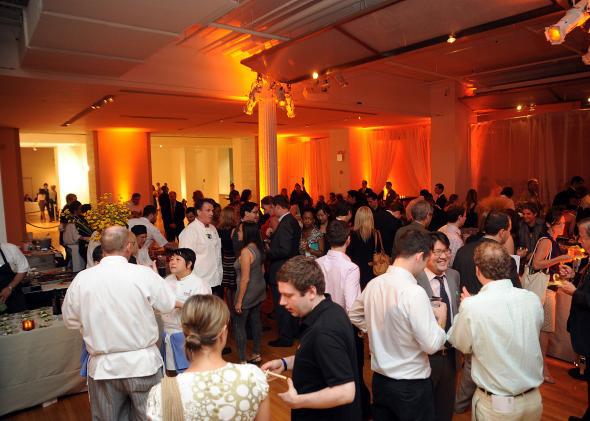Walking past a bunch of people standing in line to wait for brunch tables just now, I’m reminded that there seems to be a compelling logic behind the idea that restaurants ought to sell reservations separately from food or drink. The price of a steak is determined by the food cost and the food cost ratio that a restaurant needs to make its economics work. But as there’s clearly higher demand for a table Saturday at 7 p.m. than Tuesday at 5 p.m., making the Saturday reservation should cost you extra.
Apparently Grant Achatz now does this at Alinea in Chicago, which shows that business model innovation and culinary innovation can go hand in hand. But in some ways the reservation sale concept—Achatz calls them “tickets,” which is a good idea—seems like it would be more compelling at a more banal restaurant.
A meal at Alinea is by definition a special occasion. It costs a ton of money, it’s amazingly good, it’s much more food than a sensible person would ever want for dinner, and some of it is extremely avant-garde and weird. The precise timing of the meal is a bit irrelevant. If you want to go, you find the time to go. But for a more ordinary restaurant—good food, good service, good decor, but nothing to make a huge fuss over—timing is really important. A table outside on a nice day at the prime brunch hour is a delight, over and above the value proposition of the food. Putting the table and the time itself up for sale over and above the price of the food would be a smart move.
Of course restaurants often try to do a version of this with happy hours or pre-theater dinner specials. But it’s difficult to orchestrate that kind of thing in a sufficiently nuanced way. The demand for restaurant tables is much more nuanced than high season/low season.
Presumably restaurants don’t do this because they fear customer backlash. As we’ve seen with Uber’s use of surge pricing, ideas economists like anger some people. On the other hand, for all the pixels spilled on the Uber surge pricing backlash, I’m not actually persuaded that there’s been a net backlash. There’s a novelty bias in the media so “I’m outraged Uber quintupled fares when demand peaked” is a story while “I tried to hail a cab in the rain and it took a long time to find one” isn’t. By the same token, just because we don’t hear a vocal social media backlash full of people saying “I wanted to go to a popular restaurant on Friday night but the only table available was at 10:30 p.m.” doesn’t mean that cities across America aren’t full of people being mildly frustrated by table scarcity.
